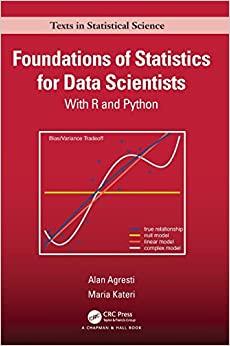Answered step by step
Verified Expert Solution
Question
1 Approved Answer
Although Greg believes he'll be able to get jobs paying the amount stated above for each of the programs, he is trying to understand better

- Although Greg believes he'll be able to get jobs paying the amount stated above for each of the programs, he is trying to understand better how much the initial salary estimate is impacting his decision. Assuming all else equal, what would the initial salaries be for each of the programs so that Greg is financially indifferent between attending that specific program or staying in her current position?
Step by Step Solution
There are 3 Steps involved in it
Step: 1

Get Instant Access to Expert-Tailored Solutions
See step-by-step solutions with expert insights and AI powered tools for academic success
Step: 2

Step: 3

Ace Your Homework with AI
Get the answers you need in no time with our AI-driven, step-by-step assistance
Get Started


